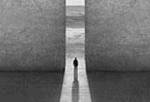This is another of the old and recurring debates that was brought up again by R. Scott Bakker. I’m linking to it because I think there are patterns that go beyond the specific discussion, and have some universal validity.
What caught my attention this time was a little subversion applied by Bakker. Turning this:
There is a paradox at the heart of these complaints: They proclaim the artificiality of genre divisions while simultaneously demanding respect for a specific one. Are we to abolish genres or privilege one? Either you want a level playing field or you don’t.
Into this:
There is a paradox at the heart of these complaints: They proclaim the artificiality of racial divisions while simultaneously demanding respect for a specific one. Are we to abolish races or privilege one? Either you want a level playing field or you don’t.
This is more than a little revelatory because it’s what brings up that pattern that I think goes beyond the “Literature” vs “genre” debate.
In general I agree with Bakker’s position. Literature, with the capital “L”, is just another genre. It has its own canons and it is written for a specific audience. What makes it different is the claim of predominant position. Literature is at the top, the apex of writing as an “art”.
But concretely it repeats some simple tribal patterns. In order to distinguish itself from everything else, literature needs strict canons. Rules. Lines drawn on the ground. Boundaries. It needs to draw its limit so that it can find an identity and protect itself from infiltrations and bastardizations. Literature needs to put itself in the lofty position because the high ground is defensible.
What is interesting is that turning it metaphorically into a racial issue isn’t simply a way to make it more extreme, but to expose the basic pattern. Racists have similar tribal concerns. They fear infiltrations and hybrids. In order to keep their race as pure as possible they need closed confines, they need those barriers. The idea of identity needs to defend what’s on this arbitrary side from everything that is outside. In the end the goal is to keep everything as it is.
Hence Bakker’s accusation to highbrow Literature is consequential: it’s unable to say something relevant. It’s a dead voice. The more it needed to preserve its own identity, the more it drew around itself a Great Wall. Closer, narrower. It became the repetition of a very strict codified canon, and in that repetition art died. To preserve its purity Literature drew around itself a limit, and within that limit it withered. The same old people saying the same old things, drifting into complacence.
In general, art that becomes fossilized is dead art (that’s also why originality is celebrated in art). Art that doesn’t feed on something alive, dies. The Muse is strangled. The dichotomy brings out the universal pattern. A closed system doesn’t stay alive for long, it becomes just an echo. Stale repetition.
On the other side “genre” readers don’t have any blinders. Bakker says genre readers are the most eclectic. They don’t read “fantasy” but they usually breach genres and come from all different kinds of social groups and age ranges. That makes “genre” a genre that is far more open to hybrids. To barbarian incursions. Being more open, it’s also more alive, fresh, in continuous change. All its parts are engaged in a dialogue, not fossilized into a canon, even if obviously it’s not a so distinct dichotomy and you can see even in “genre” all the negative tendencies.
But again, this makes it interesting. A thing that is alive and in continuous evolution as long it remains open and free of prejudices. There are writers who will stay firmly within a genre canon and make the walls their home, but there will be others who will be more ambitious, dare more, trying to say something new and challenging. Tying together tradition with subversion. Lighting the spark of revolution. Keeping up the enthusiasm.
This pattern is as old as life itself. When human beings reproduce the genetic material gets mixed. That’s how life stays alive: through change. Walls can keep you alive, but they can also can kill you if you start to believe that they are the point. Diversity is something to be celebrated, in literature as in culture and between “races”. Including diversity between each human being. That is what makes us rich, and keeps us alive and healthy. The exchange of parts.
In modern life our purpose isn’t anymore just to reproduce. Culture has also a lasting impact on human life and the whole world. But in the same way sex and reproduction are based on an exchange, so is indispensable for culture the exchange of parts. Literature being just a very small, but still essential, piece.

